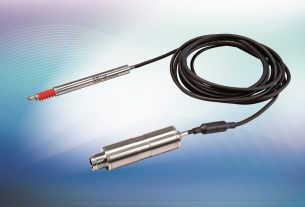One of the UK’s leading utility management specialists for industry is celebrating its 40th birthday in style by committing to helping tens of manufacturers become Net Zero.
Control Energy Costs (CEC), which has its Headquarters in Surrey and a strong presence in the Midlands and Yorkshire, is helping SMEs become more sustainable by launching a new e-book and short film.
They are designed to be a simple guide to help businesses understand more about renewable energy, how they can start reducing their carbon footprint and why it is important to engage with your employees. There are also sections covering the differences between Net Zero and carbon neutral.
It comes after CEC made its own commitment to become Net Zero within 12 months, with management working with its 25-strong workforce to review its current carbon footprint, before putting in place a blueprint to reduce energy consumption, purchase energy from renewable sources and rebalance any carbon emissions.
“Sustainability is firmly in the news and our Government has an ambitious target for when the entire country will be Net Zero,” commented Phil Ager, Managing Director of CEC.
“As one of the key players in the energy sector, we wanted to be one of the first to commit to this strategy and what better time to do it than to mark our 40th anniversary. Now it’s time to help manufacturers make the same commitment.”
He continued: “Our experts have so much knowledge and experience, we decided to package this expertise into an e-book and short animation.
“All sectors need to do more and there is legislation on the way that will make reporting and reducing carbon mandatory. We want to make sure our clients are in a position to comply with the new rules.”
Control Energy Costs is launching its e-book on Earth Day (April 22nd) and it will be available via cec.uk.com/greenenergy.
The guide covers five main sections, ranging from the different types of renewable energy you can choose and the risk of falling for ‘greenwashing by companies’ to engaging employees, Government legislation/schemes and how you can carbon offset.
It also tackles the importance of having an ESG (Environmental, Social and Governance) framework in place, which could deliver companies a commercial and competitive advantage when tendering for new work.
“For manufacturers that lead the way in transitioning to a low carbon economy, there can be significant opportunities,” added Phil.
“Working towards Net Zero makes good social and commercial sense and we are ready and waiting to support existing and new customers to start their journey.”
Control Energy Costs offers an initial ‘no cost, no obligation’ audit review of both current and historic energy arrangements, looking for opportunities to secure retrospective refunds and rebates, reduce non-commodity/third party charges and, where appropriate, advise on future energy contracts.
Other core activities include bespoke flexible purchasing and hedging strategies for larger clients, siteworks and project management via a dedicated CEC solutions team, energy consumption, budget and forecasting tools to help clients to drive down energy usage, alongside traditional bill validation and invoice resolution services.
For further information, please visit cec.uk.com/greenenergyor follow @CECchat on twitter.




